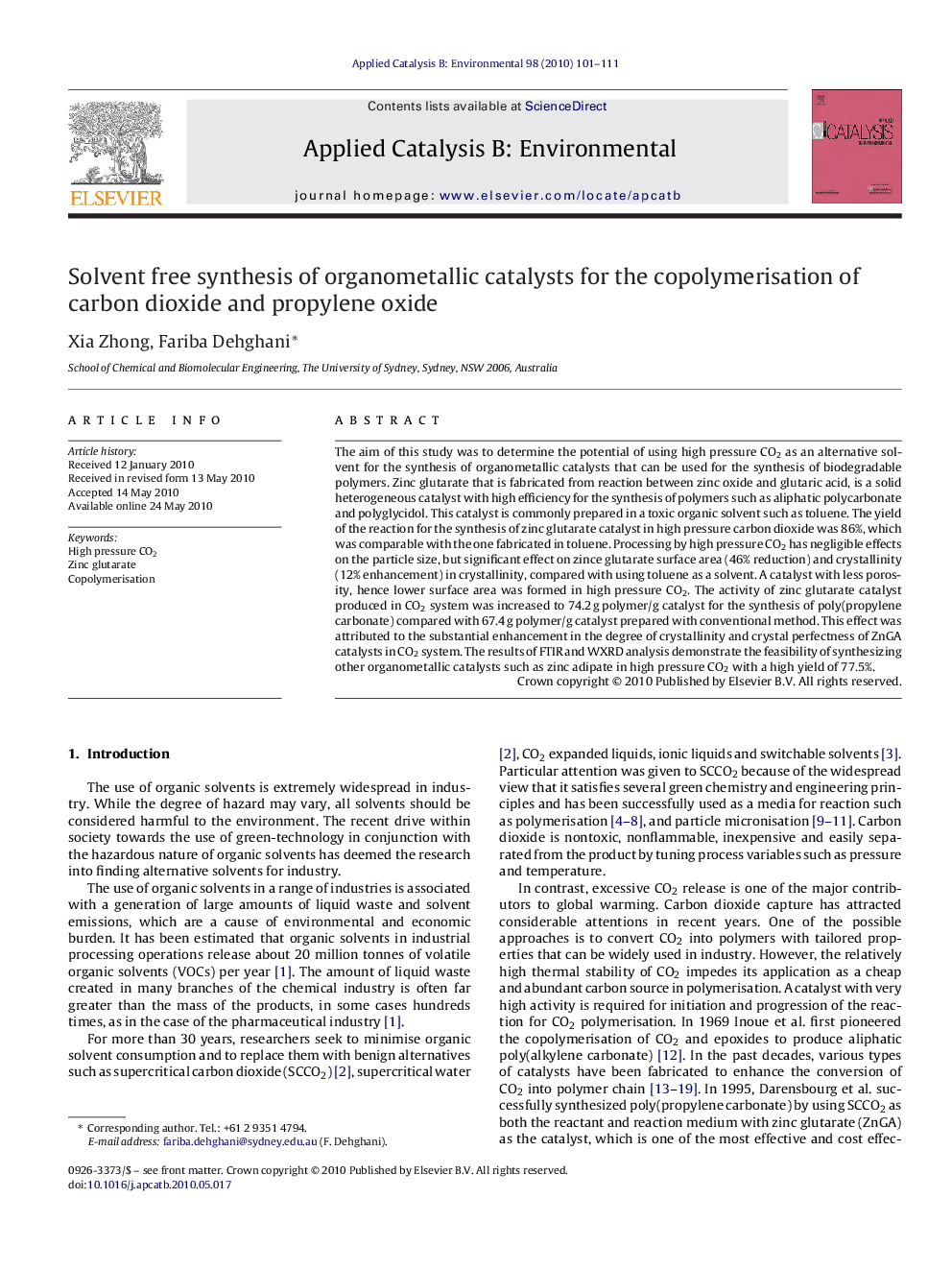| Article ID | Journal | Published Year | Pages | File Type |
|---|---|---|---|---|
| 47253 | Applied Catalysis B: Environmental | 2010 | 11 Pages |
The aim of this study was to determine the potential of using high pressure CO2 as an alternative solvent for the synthesis of organometallic catalysts that can be used for the synthesis of biodegradable polymers. Zinc glutarate that is fabricated from reaction between zinc oxide and glutaric acid, is a solid heterogeneous catalyst with high efficiency for the synthesis of polymers such as aliphatic polycarbonate and polyglycidol. This catalyst is commonly prepared in a toxic organic solvent such as toluene. The yield of the reaction for the synthesis of zinc glutarate catalyst in high pressure carbon dioxide was 86%, which was comparable with the one fabricated in toluene. Processing by high pressure CO2 has negligible effects on the particle size, but significant effect on zince glutarate surface area (46% reduction) and crystallinity (12% enhancement) in crystallinity, compared with using toluene as a solvent. A catalyst with less porosity, hence lower surface area was formed in high pressure CO2. The activity of zinc glutarate catalyst produced in CO2 system was increased to 74.2 g polymer/g catalyst for the synthesis of poly(propylene carbonate) compared with 67.4 g polymer/g catalyst prepared with conventional method. This effect was attributed to the substantial enhancement in the degree of crystallinity and crystal perfectness of ZnGA catalysts in CO2 system. The results of FTIR and WXRD analysis demonstrate the feasibility of synthesizing other organometallic catalysts such as zinc adipate in high pressure CO2 with a high yield of 77.5%.
